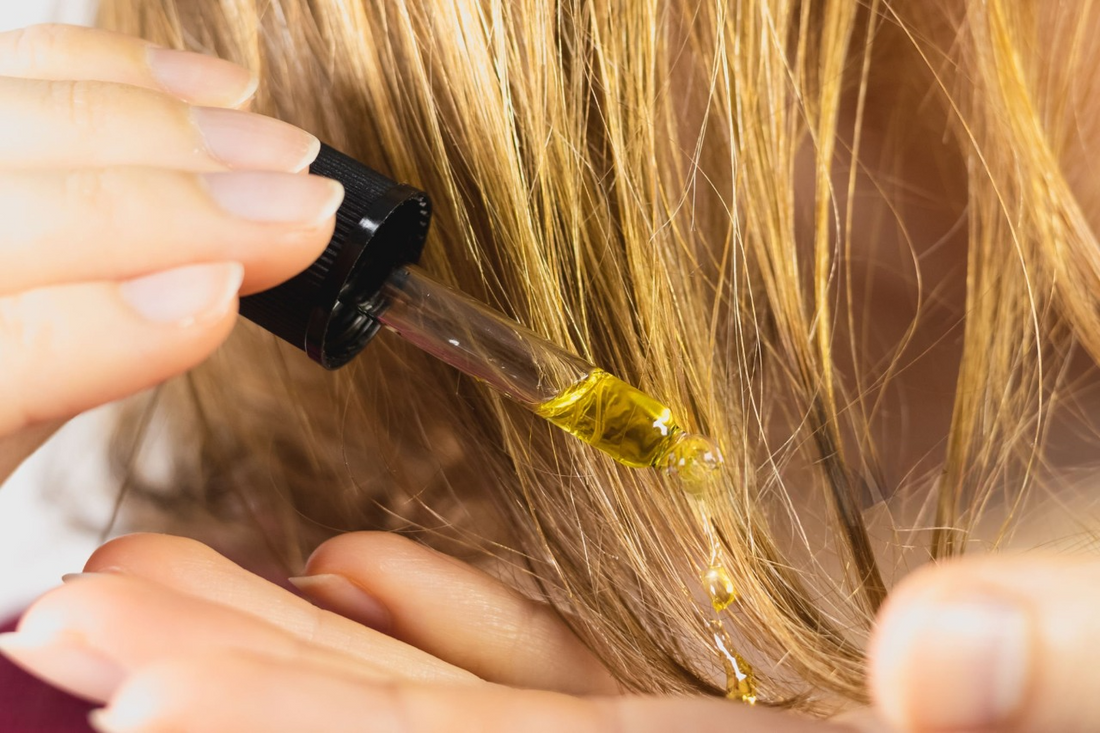
How to Use Jojoba Oil for Low Porosity Hair
Share
Low porosity hair requires special care to maintain moisture and prevent product buildup. One of the best natural oils to nourish and protect low porosity hair is jojoba oil.
This lightweight oil closely resembles the natural sebum produced by the scalp, making it an excellent choice for hydration without weighing hair down.
In this guide, we’ll explore how to effectively use jojoba oil for low porosity hair to maximize its benefits.
Understanding Low Porosity Hair
Low porosity hair has tightly bound cuticles that make it difficult for moisture to penetrate. As a result, products tend to sit on the surface rather than being absorbed. This can lead to dryness, product buildup, and difficulty in maintaining hydration. The key to caring for low porosity hair is using lightweight, non-greasy products that can penetrate the hair shaft efficiently.
Why Jojoba Oil is Ideal for Low Porosity Hair
Jojoba Oil Benefits for Hair
Jojoba oil is rich in vitamins and minerals that support healthy hair growth and scalp health. Some key benefits include:
- Mimics Natural Sebum: Helps regulate scalp oil production.
- Lightweight & Non-Greasy: Easily absorbed without clogging hair cuticles.
- Hydration & Protection: Seals in moisture and reduces breakage.
- Balances Scalp Health: Helps with dandruff and scalp irritation.
For more information, check out the detailed guide: Top 10 Benefits of Jojoba Oil for Hair
How to Use Jojoba Oil for Low Porosity Hair
1. Pre-Poo Treatment
Applying it before shampooing can protect your hair from excessive dryness caused by cleansing products. To use:
- Warm a few drops of jojoba oil in your hands.
- Gently massage into the scalp and distribute through your hair.
- Leave it on for 15-30 minutes before washing with a sulfate-free shampoo.
2. Scalp Massage for Hair Growth
Jojoba oil promotes scalp circulation, which can enhance hair growth. For best results:
- Use 2-3 drops of jojoba oil.
- Massage into the scalp in circular motions for 5-10 minutes.
- Repeat 2-3 times a week for improved scalp health.
3. Leave-In Moisturizer
Since low porosity hair struggles to absorb moisture, using jojoba oil as a leave-in treatment can help lock in hydration.
- Apply a small amount to damp hair after washing.
- Focus on the ends to prevent split ends and breakage.
- Avoid excessive application to prevent buildup.
4. Mix with Conditioner
Enhance your deep conditioning routine by adding jojoba oil:
- Mix a few drops of jojoba oil with your favorite conditioner.
- Apply to your hair and let it sit for 10-20 minutes.
- Rinse with lukewarm water for soft, hydrated hair.
5. Sealing in Moisture
Jojoba oil works well as a sealant after applying a water-based moisturizer.
- Apply a hydrating leave-in conditioner first.
- Use a few drops of jojoba oil to lock in moisture.
- Style as usual to maintain hydration throughout the day.
How Often Should You Use Jojoba Oil for Low Porosity Hair?
Using jojoba oil 2-3 times a week is sufficient to keep your hair nourished and healthy. Avoid overuse to prevent buildup, which can make low porosity hair feel greasy.
Shop Jojoba Oil and get lightweight hydration for healthier, nourished hair.
Choosing the Right Jojoba Oil in Pakistan
When selecting jojoba oil, opt for 100% pure, cold-pressed jojoba oil for maximum benefits. Avoid products with added chemicals or fragrances.
Read More: Top-Rated Oils for Low Porosity Hair in Pakistan
Additional Hair Care Tips for Low Porosity Hair
- Use heat during deep conditioning to open cuticles and enhance absorption.
- Stick to lightweight, water-based products to avoid buildup.
- Wash hair with warm water to gently lift cuticles for better product penetration.
- Incorporate regular scalp massages with jojoba oil to improve circulation and hair growth.
Read More: Hair Care Tips to keep your low porosity hair moisturized, strong, and healthy!
Final Thoughts
Caring for low porosity hair requires the right balance of hydration and lightweight nourishment. Jojoba oil is one of the best natural solutions, offering moisture retention without weighing hair down or causing buildup. Its ability to mimic the scalp’s natural oils makes it perfect for strengthening strands, reducing dryness, and promoting a healthy scalp.
By using jojoba oil in various ways, whether as a pre-poo treatment, scalp massage oil, or leave-in moisturizer—you can transform your hair’s health and manageability.
For the best results, always choose pure, cold-pressed jojoba oil free from additives and synthetic ingredients. Ready to give your hair the care it deserves?
Shop Premium Jojoba Oil offered by Ela De Pure and experience the difference in your hair’s hydration, softness, and overall vitality!
Frequently Asked Questions (FAQs)
1. Is jojoba oil good for low porosity hair?
Yes, jojoba oil is excellent for low porosity hair because it is lightweight, non-greasy, and closely mimics the scalp’s natural sebum. It helps with moisture retention without causing buildup, making it ideal for this hair type.
2. How often should I use jojoba oil for low porosity hair?
It is best to use jojoba oil 2-3 times a week to keep your hair hydrated and healthy. Overuse can lead to buildup, so applying it in small amounts or mixing it with other hair products is recommended.
3. Can I leave jojoba oil in my hair overnight?
Yes, you can leave jojoba oil in your hair overnight, especially as a scalp treatment. However, for low porosity hair, it’s best to use a small amount to avoid excessive buildup.
4. Should I apply jojoba oil to wet or dry hair?
For better absorption, apply jojoba oil to damp hair after washing. This helps lock in moisture and prevents dryness, which is common in low porosity hair.
5. Can jojoba oil help with hair growth?
Yes, jojoba oil promotes scalp health by preventing dryness and dandruff, which can create a better environment for hair growth. Regular scalp massages with jojoba oil can improve circulation and support stronger, healthier hair.
